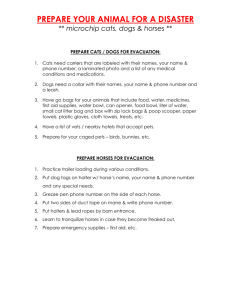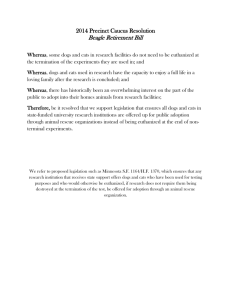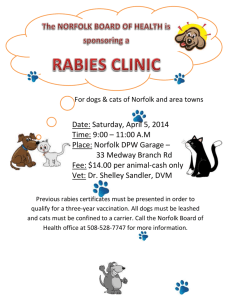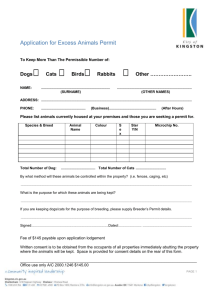Click here for the 5/5 Lecture.
advertisement
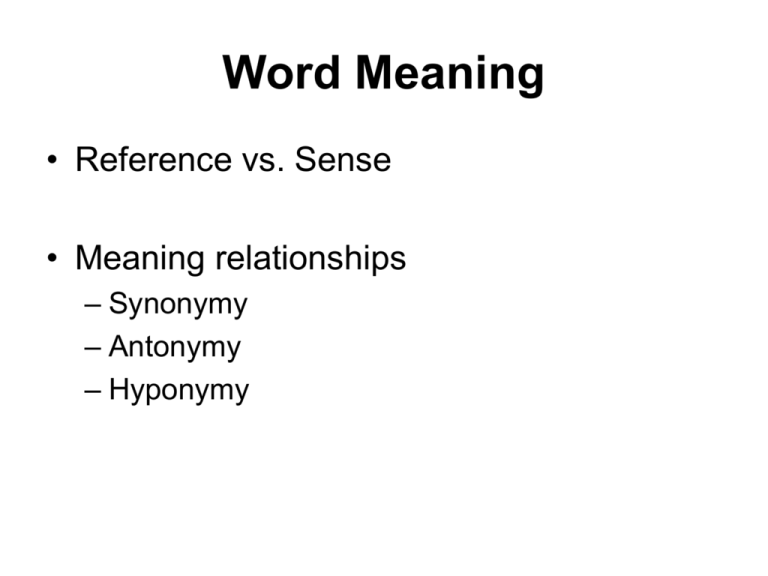
Word Meaning • Reference vs. Sense • Meaning relationships – Synonymy – Antonymy – Hyponymy Sentence Meaning • What do you know when you know what a sentence means? • => The conditions under which that sentence would be true Truth Conditions • “World War II ended in 1945.” • …is true if WWII did in fact end in 1945. Truth Values • “World War II ended in 1945.” =T • “World War II ended in 1919.” =F • What about: • “Puli is a city in Taiwan.” • We can understand this sentence because we know its truth conditions. • ‘I want to be the president of the U.S.’ vs. ‘I want to be George W. Bush.’ => Different truth conditions Principle of Compositionality Meaning of a sentence Meanings of its component parts (the words) Plus Structures they occur in (the relationships between the words based on the syntax). Sentential Meaning S – NP – | – Sandy VP | runs Truth Conditions • The individual ‘Sandy’ • The set of runners • => Is Sandy a member of the set of runners? Not just meanings of words S – NP – | – Dogs – VP V chase NP cats Same words, different meanings S – NP – | – Cats – VP V chase NP dogs Thematic Roles • S => NP1 (Aux) VP • VP => V NP2 • Agent: initiator of the action, capable of volition • • David broke the window. The fox jumped up. • Patient: undergo the effect of some action, often undergo a change of state • Fred shattered the rock. • The sun melted the ice. • Theme: moved by an action, or entity whose location is described • Fred threw the rock. • The book is in the library. • Dogs chase cats. • => dogs = Agent; cats = Theme • Cats chase dogs. • => cats = Agent; dogs = Theme • Dogs chase cats. (Active) • Cats are chased by dogs. (Passive) • Active sentence: Subject = Agent • Passive sentence: Subject = Theme Intersective Adjectives • red book »book red Subsective Adjectives • snowflake • big snowflake • => Relative intersection Semantic Relations between Sentences • • • • Entailment If S1 is true, then S2 is also true. S1: Julius Ceasar was a famous man. S2: Julius Ceasar was a man. • S1: • S2: Bob has a beagle. Bob has a dog. • => ‘beagle’ is a hyponym of ‘dog’. Negative sentences • Seattle is a hypernym of Ballard • X: ‘Bill Gates doesn't live in Seattle.’ entails • Y: ‘Bill Gates doesn't live in Ballard.’ Factive Verbs • I know that Bob is in Spain. • => Bob is in Spain. • I regret the incident. • => There was an incident.

